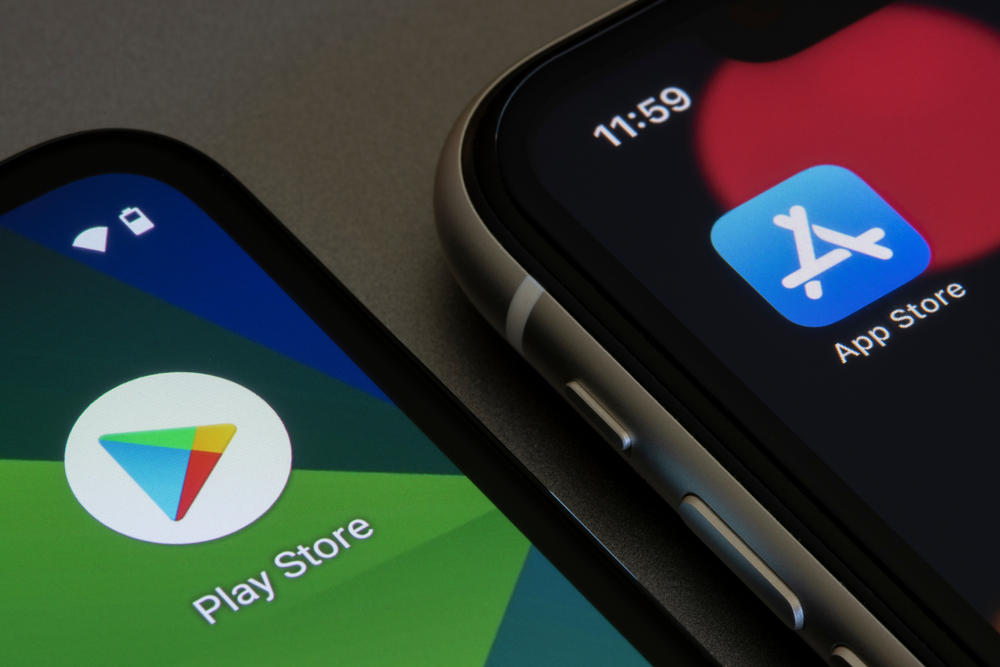
Mobile apps have become an integral part of our daily lives. From entertainment to productivity, there is an app for everything. However, with over 5 million apps available in major app stores, it has become increasingly challenging for mobile app developers to stand out. In this article, we will explore some expert marketing tips and tricks to boost the success of your mobile iOS or Android app .
1. App Store Optimization (ASO)
App Store Optimization (ASO) is like SEO for mobile App Store or Google Play app s. It involves optimizing various elements of your app's listing in the app store to improve its visibility and ranking. Keywords play a vital role in ASO, so make sure to conduct thorough research to identify relevant and high-volume keywords. Incorporate these keywords strategically in your app title, description, and even in the app's metadata. When done right, ASO can significantly increase organic downloads and improve your app's discoverability.
2. Create a Compelling App Landing Page
Your app's landing page is the first impression users get before downloading it. Make sure it is visually appealing, informative, and highlights the unique selling points of your mobile Android or iOS app . Use high-quality screenshots, demo videos, and customer testimonials to showcase the app's features and benefits. Include a clear call-to-action button for users to download the app directly from the landing page. Don't forget to optimize the page for mobile devices to ensure a seamless user experience.
3. Leverage Social Media
Social media platforms provide a vast audience base to promote your mobile Google Play or App Store app . Create dedicated accounts for your app on popular platforms like Facebook, Instagram, Twitter, and LinkedIn. Regularly post engaging content related to your app, such as tutorials, user success stories, app updates, and industry news. Leverage influencer marketing by collaborating with influential social media personalities who can endorse and promote your app to their followers. Additionally, use targeted ads on these platforms to reach a wider audience and drive app installations.
4. Implement In-App Referral Programs
In-app referral programs are an effective way to incentivize your existing users to promote your app. Offer rewards or discounts to users who refer your app to their friends or contacts. This not only helps in acquiring new users but also creates a sense of loyalty and engagement among your existing user base. Implement a simple and user-friendly referral mechanism within your app, along with clear instructions on how users can earn rewards by referring others. Word-of-mouth marketing through referrals can significantly boost your app's reach and downloads.
5. Collaborate with Influencers and Bloggers
Influencer marketing is a powerful tool to create buzz around your mobile app . Identify influencers and bloggers in your app's niche who have a substantial following and engage with your target audience. Reach out to them and propose collaborations, such as sponsored reviews, guest posts, or exclusive discount codes for their audience. The credibility and reach of these influencers can boost your app's visibility and attract a larger user base. Ensure that the influencers align with your app's values and target audience to maximize the impact of these collaborations.
Frequently Asked Questions
1. How long does it take to see results from app store optimization?
The results of app store optimization can vary based on various factors, including the competitiveness of your app category and the quality of the optimization efforts. Generally, you can start seeing improvements in your app's visibility and organic downloads within a few weeks, but it may take several months to achieve significant results. Consistency and continuous optimization are key to long-term success.
2. Is social media marketing necessary for promoting my mobile app?
While social media marketing is not mandatory, it can significantly boost your app's success. Social media platforms provide an opportunity to reach a wide range of potential users, engage with your audience, and build brand awareness. It allows you to showcase your app's features, share updates, and leverage influencer collaborations to expand your reach. However, choose the platforms strategically based on your app's target audience to maximize the effectiveness of your social media marketing efforts.
3. How important is user feedback for the success of my mobile app?
User feedback is invaluable for the success of your mobile app. It helps you understand the pain points and expectations of your users, allowing you to continuously improve the app's features and user experience. Positive user reviews and ratings can significantly impact downloads and conversions. Actively encourage users to provide feedback, listen to their suggestions, and incorporate relevant improvements in your app updates. A user-centric approach can enhance user satisfaction and lead to higher app success rates.
4. Should I prioritize paid marketing campaigns or organic growth strategies?
Both paid marketing campaigns and organic growth strategies have their advantages. Paid marketing campaigns, such as targeted ads and app install campaigns, can help jumpstart your app's user acquisition and increase visibility within a short period. On the other hand, organic growth strategies, such as ASO, social media engagement, and referrals, can lead to sustainable growth and a loyal user base. It is recommended to have a balanced approach and leverage both strategies based on your app's stage and marketing goals.
5. How often should I update my mobile app?
Regular updates are essential to keep your app relevant, secure, and bug-free. Aim to release updates at regular intervals, addressing user feedback, fixing any reported issues, and introducing new features or enhancements. However, be cautious not to overwhelm users with frequent updates, as it can lead to frustration. Consider user preferences, market trends, and the complexity of the changes before deciding on the frequency of updates. Generally, a monthly or bi-monthly update cycle works well for most mobile apps.
Other useful resources
- https://www.appguru24.com/apps-directory/
- https://www.appguru24.com/apps/
- https://www.appguru24.com/services/app-development/
- https://www.appguru24.com/promote-ios-app/